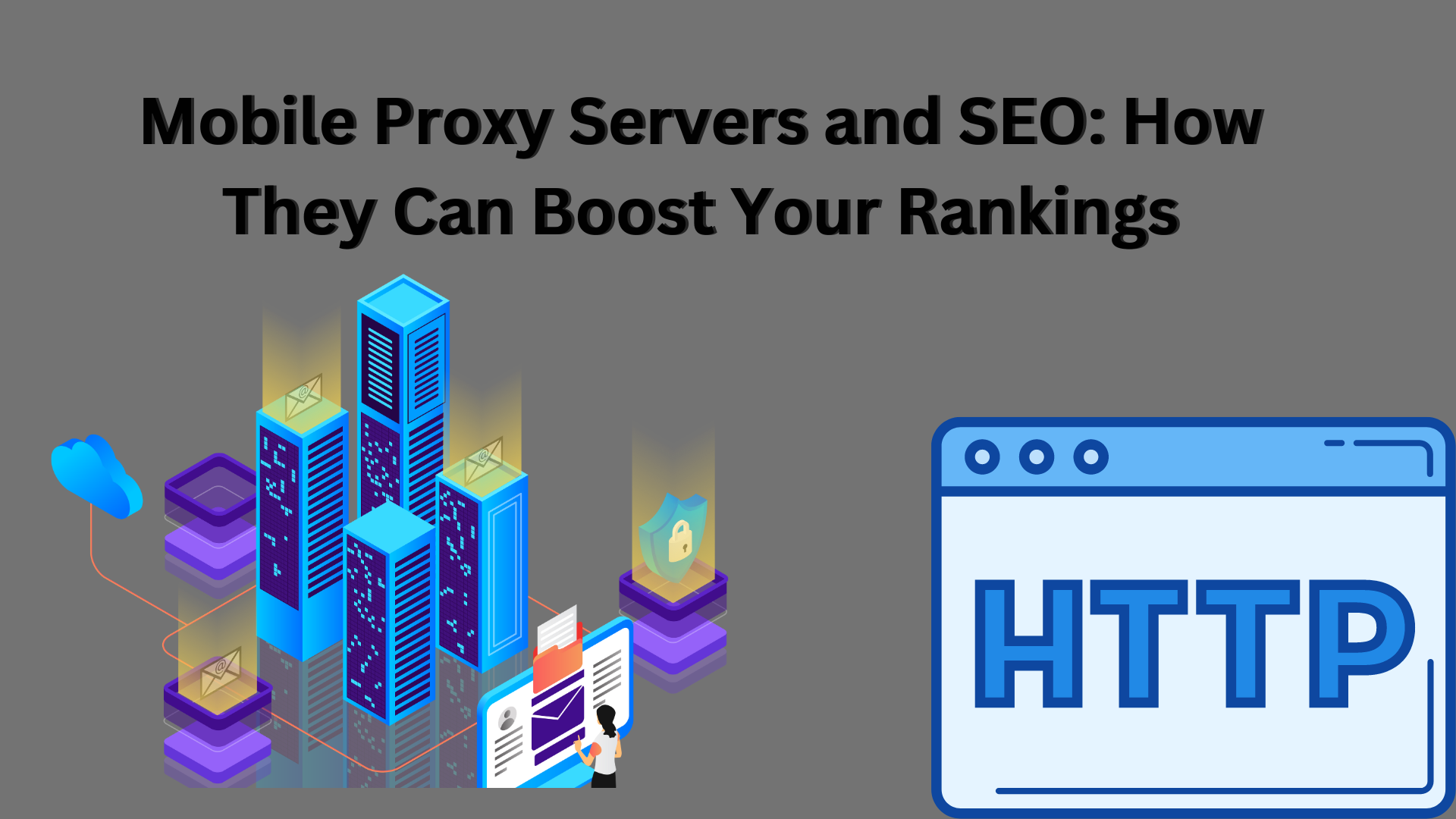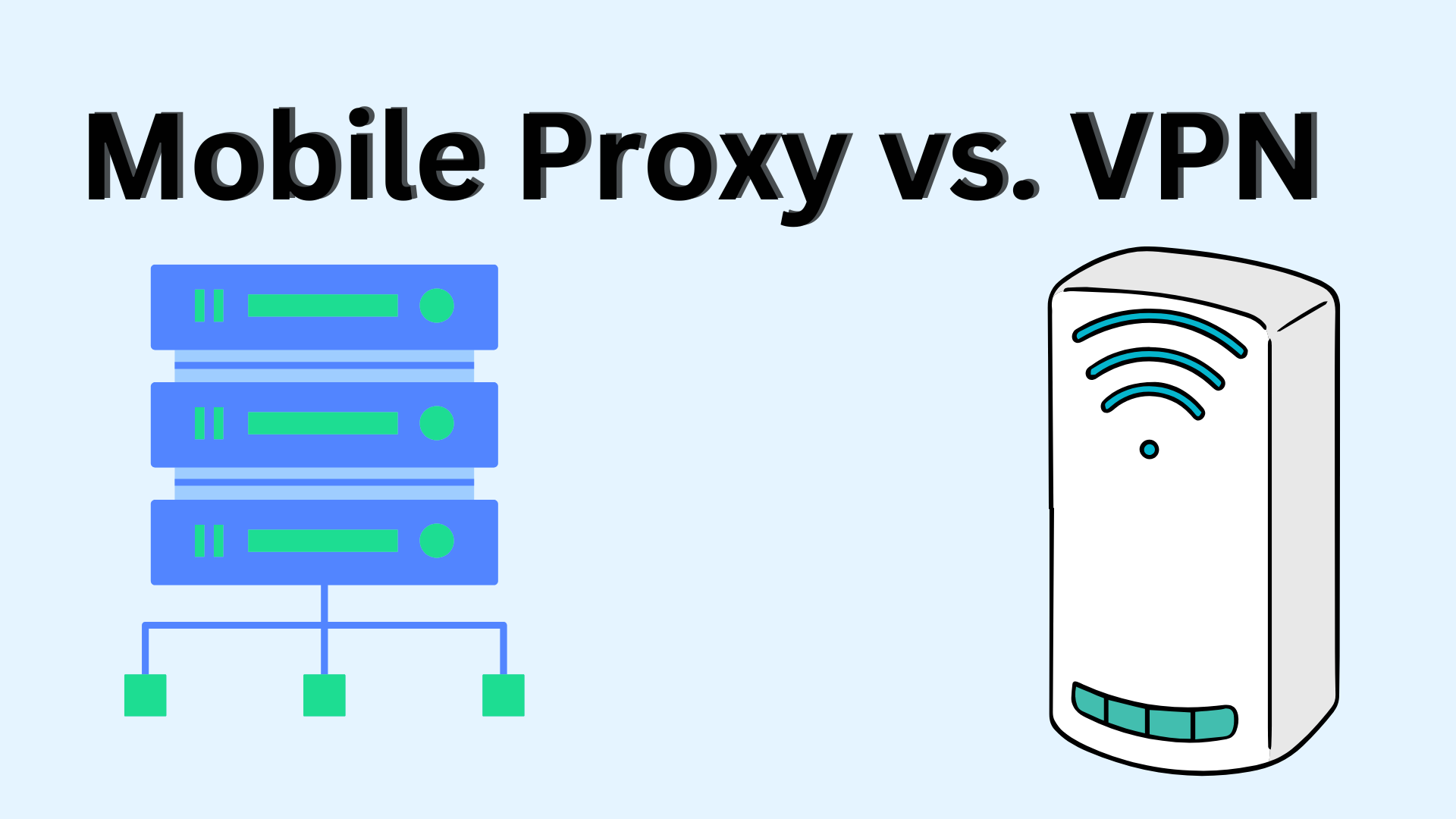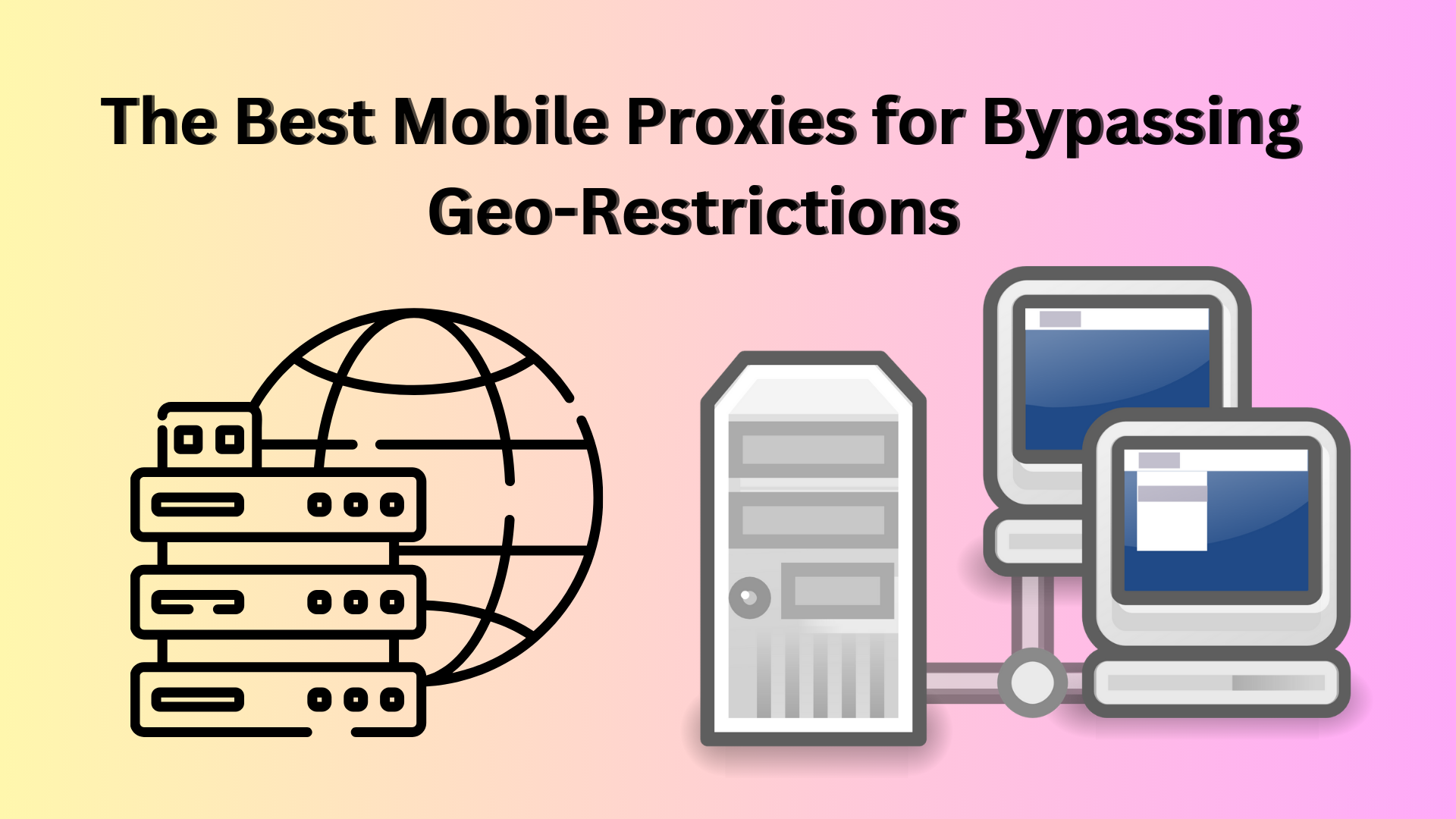What is a Mobile Proxy Server?
A mobile proxy server is a type of proxy that routes your internet traffic through mobile devices connected to cellular networks. This means that the IP address assigned to your online activities comes from a mobile carrier, making it appear as if you’re browsing from a smartphone or tablet. This can be particularly beneficial in situations where mobile-based browsing is prioritized or where geographical restrictions apply.
The Importance of SEO in Digital Marketing
Search engine optimization (SEO) is the practice of optimizing your website and content to rank higher in search engine results pages (SERPs). Higher rankings lead to increased visibility, more website traffic, and ultimately, more conversions. In today’s digital landscape, effective SEO is essential for businesses of all sizes to compete and succeed online.
Understanding Mobile Proxy Servers
How Mobile Proxies Work
Mobile proxies work by assigning you an IP address that belongs to a mobile network. When you connect to the internet through a mobile proxy, your requests are routed through this mobile IP, making it appear as if you’re accessing the internet from a mobile device. This can be particularly useful for tasks like accessing mobile-only content, testing mobile-specific ads, or conducting mobile-first SEO strategies.
Differences Between Mobile and Traditional Proxies
While traditional proxies typically use IP addresses from data centers, mobile proxies use IPs from mobile carriers. This difference makes mobile proxies less likely to be flagged or blocked by websites and search engines, as they appear to be legitimate mobile users rather than automated bots. This unique characteristic gives mobile proxies an edge in certain SEO tasks, such as bypassing geographical restrictions and conducting local SEO campaigns.
The Role of Mobile Proxies in SEO
Enhancing Local SEO
Local SEO is all about optimizing your online presence to attract more business from relevant local searches. Mobile proxies can significantly enhance local SEO efforts by allowing you to appear as a local user from a specific location. This can be invaluable when trying to rank in different regions or when targeting local keywords.
Bypassing Geographical Restrictions
Certain content and search results are geo-restricted, meaning they can only be accessed from specific locations. Mobile proxies enable you to bypass these restrictions by providing IP addresses from various locations. This allows you to view and analyze search results and content from any region, giving you a more comprehensive understanding of global SEO opportunities.
Avoiding IP Blocks and Bans
When performing SEO tasks like web scraping or competitor analysis, there’s always a risk of your IP being blocked or banned. Mobile proxies help mitigate this risk by providing a pool of rotating IPs, making it harder for search engines or websites to detect and block your activities. This ensures that your SEO efforts remain uninterrupted.
Facilitating Competitor Analysis
Competitor analysis is a critical component of any successful SEO strategy. By using mobile proxies, you can gather data on your competitors’ mobile sites, track their mobile rankings, and analyze their mobile ad campaigns without revealing your identity. This information can be used to refine your SEO strategy and gain a competitive edge.
Benefits of Using Mobile Proxies for SEO
Improved Anonymity and Security
One of the primary benefits of using mobile proxies is the enhanced anonymity and security they provide. By masking your IP address with that of a mobile device, mobile proxies make it more difficult for websites and search engines to track your activities. This is particularly useful when conducting sensitive SEO tasks or when operating in competitive markets.
Accessing Mobile-Only Content
With the rise of mobile-first indexing by search engines, mobile content has become increasingly important for SEO. Mobile proxies allow you to access and analyze mobile-only content, ensuring that your SEO strategy is fully aligned with the latest trends and best practices. This can help you optimize your site for mobile users and improve your mobile search rankings.
Better Ad Verification and Testing
Mobile proxies are invaluable for ad verification and testing. By using mobile IPs from different locations, you can verify that your ads are being displayed correctly across various regions and devices. This ensures that your ad campaigns are reaching the right audience and performing as expected, which is crucial for maximizing ROI.
Effective Web Scraping for SEO
Web scraping is a common practice in SEO for gathering data on keywords, backlinks, and competitors. However, many websites block scraping attempts, especially from known data center IPs. Mobile proxies, with their rotating IPs and mobile origin, can bypass these blocks, allowing you to scrape data more effectively and without interruption.
Setting Up Mobile Proxies for SEO
Choosing the Right Proxy Provider
The first step in using mobile proxies for SEO is selecting a reliable proxy provider. Look for providers that offer a large pool of mobile IPs, fast connection speeds, and robust security features. It’s also important to choose a provider that offers IPs from the locations you intend to target in your SEO campaigns.
Configuring Mobile Proxies for SEO Tools
Once you’ve chosen a proxy provider, the next step is to configure your SEO tools to work with mobile proxies. Most SEO tools, such as Ahrefs, SEMrush, and Screaming Frog, allow you to integrate proxies for tasks like keyword research, rank tracking, and site audits. Make sure to test your proxies to ensure they are functioning correctly and providing the desired results.
Managing Multiple Mobile Proxies
If you’re running extensive SEO campaigns, you may need to manage multiple mobile proxies simultaneously. This can be done through proxy management tools that allow you to rotate IPs, set usage limits, and monitor performance. Proper management of your proxies is essential for maintaining efficiency and avoiding issues like IP blocks or overuse of data.
Advanced SEO Strategies with Mobile Proxies
Geo-Targeting and Multilingual SEO
Geo-targeting involves tailoring your content to specific locations, while multilingual SEO focuses on optimizing your site for different languages. Mobile proxies are perfect for these strategies because they allow you to access local search results and content from various regions. This enables you to create more targeted and relevant content for your audience, improving your chances of ranking higher in those specific locations.
Automating SEO Tasks with Mobile Proxies
Automation is key to scaling your SEO efforts, and mobile proxies play a crucial role in this process. By using mobile proxies with automation tools, you can streamline tasks like rank tracking, content analysis, and link building. This not only saves time but also ensures that your SEO efforts are consistent and effective.
Using Mobile Proxies for Social Media Management
Social media is an integral part of any SEO strategy, and mobile proxies can enhance your social media management efforts. By using mobile proxies, you can manage multiple social media accounts, schedule posts, and monitor engagement without risking account bans. This is particularly useful for agencies managing social media for multiple clients.
Common Challenges and How to Overcome Them
Handling Data Usage and Costs
One of the main challenges of using mobile proxies is managing data usage and associated costs. Mobile proxies can consume a significant amount of data, especially when used for tasks like web scraping or automation. To mitigate this, consider using proxies with unlimited data plans or configuring your proxies to limit data usage.
Avoiding Over-Optimization
Over-optimization is a common SEO pitfall that can result in penalties from search engines. When using mobile proxies, it’s important to avoid over-optimizing your site by engaging in practices like excessive link building or keyword stuffing. Focus on creating high-quality, relevant content that provides value to your audience.
Ensuring Compliance with Search Engine Guidelines
Search engines like Google have strict guidelines regarding the use of proxies and automated tools. To avoid penalties, ensure that your SEO activities are in compliance with these guidelines. This includes using proxies responsibly, avoiding spammy practices, and focusing on user experience.
Conclusion
Mobile proxies offer a powerful tool for enhancing your SEO efforts. From improving local SEO and bypassing geographical restrictions to ensuring better anonymity and security, mobile proxies can significantly boost your search engine rankings. By integrating mobile proxies into your SEO strategy, you can stay ahead of the competition and achieve better results in today’s digital landscape.
FAQs
Are mobile proxies legal for SEO purposes?
Yes, using mobile proxies for SEO is legal as long as your activities comply with search engine guidelines and local laws. It’s important to use proxies responsibly and avoid engaging in practices that could be considered unethical or spammy.
How do mobile proxies differ from residential proxies?
While both mobile and residential proxies use IP addresses that appear to be from real users, mobile proxies are specifically tied to mobile networks. This makes them more effective for tasks like mobile-first SEO and accessing mobile-only content.
Can mobile proxies improve mobile search rankings?
Yes, mobile proxies can help improve mobile search rankings by allowing you to test and optimize your site for mobile devices. With mobile-first indexing becoming the norm, this is an increasingly important aspect of SEO.
What is the cost of using mobile proxies for SEO?
The cost of mobile proxies can vary depending on the provider, the number of IPs you need, and the amount of data usage. It’s important to choose a provider that offers transparent pricing and aligns with your SEO budget.
How do I maintain my mobile proxies for long-term use?
To maintain your mobile proxies for long-term use, ensure that you regularly monitor their performance, manage data usage, and rotate IPs as needed. Additionally, choose a proxy provider with reliable customer support to address any issues that may arise.





